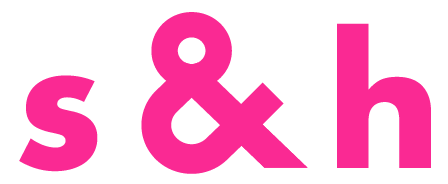COVID-19 Emerging Cultural Tensions
Trust in governments vs. employers
Governments are facing the headwinds of misinformation, historic low trust levels, and a pandemic for which few were prepared. On the other hand, employers have been forced to play a role in more intimate aspects of people’s lives. Those fortunate to have a job find themselves interacting with their employers in ways that are very different from business as usual, with working from home policies, mental health support, and even inviting bosses into your homes via video calls. The result is a shift that might endure post-crisis and continue to blur the lines between private and public sectors, reshaping expectations for all private organizations on how they show up in public life.
Urbanization vs. pandemic preparedness
The pandemic has every aspect of city living under scrutiny. In the US, some city dwellers are escaping close quarters by heading out to the suburbs and exurbs. In the face of restaurants, small businesses, museums, theaters and everyday life shutting down, city planners are evaluating how to improve resiliency and rethink certain pillars of city life. In places like Venice, nature may be doing the job for them, as dolphins take the place of humans in the city’s canals.
Bailing out industry vs. main street
Left or right, the pandemic is a great economic flattener affecting everyone and every industry, but competing ideologies are coming in the way of efforts to stimulate the economy to battle the pandemic. The basics of personal finance are being used against big corporations seeking government funds, as the cash flow problems of many big businesses predate the pandemic. Bailing out industries, such as the airlines, are set against calls for individual economic stimuli, such as Universal Basic Income, or a payout of $2,000 per every American. At the same time, the need to support gig economy workers and small businesses is growing louder.
Globalization vs. global lockdown
The pandemic is making our interconnected world even more visible, along with the realization that prevention and containment must become a global task. Local governments are sharing strategies and connecting across borders. In the US, Bloomberg introduced a response network for mayors, blurring state lines and connecting cities. At the same time, with every passing day — and White House press briefing — racism, nationalism, and the far right agenda are surging. The restriction of movement as a containment tactic is being used to put up even greater walls.
Surveillance technology vs. privacy rights
China’s containment strategy of the pandemic highlighted the critical role of biometrics, mobile, and other technologies. In the US, the government is turning to big tech to combat coronavirus. But privacy rights advocates warn that western democracies must evaluate alternative paths. As privacy rights become human rights, this tension will intensify amid the war against coronavirus.
Social distancing vs. mental health
Experts agree that social distancing is not a solution, but a necessary step in countering the spread of coronavirus. But staying six feet away from all humans or in quarantine is an unprecedented situation, the consequences of which are unknown in the long-term. While the economic side effects of social distancing are leaving an immediate mark on the service industry, gig economy workers and small businesses, the effects on our mental health and relationships over time is sounding alarms, too. Let’s not forget that the coronavirus crisis is taking place amid a loneliness and mental health epidemic.
Social distancing vs. the service economy
The small business sector in the service economy is being hit particularly hard by the pandemic. As uncertainty grows, many are innovating ways to stay in business, or at least buy time to stay open, while some businesses are focusing on fighting the coronavirus. Museums are pushing virtual experiences and all kinds of businesses offering education and training, from virtual chefs cooking up your dinner to fitness instructors offering classes streamed from rooftops. Of course, there’s always John Legend serenading you live from his living room, too.
Home delivery vs. automation and waste
The hunkering down of millions of households in developed economies is leading to a rise of e-commerce and home delivery services, and Amazon hiring 100K workers. Subsequently, we will see increased demands in supply chain transparency and safety for both the consumer as well as frontline employees. We can also expect an acceleration of automation in every aspect of the value chain, from warehouse and inventory management to the last mile of delivery. In the short term, all of those deliveries will add up to excess waste from packaging, which can stress sanitation services everywhere.
Containment vs. evolution
In a time of crisis, immediate response must take precedent. That said, the tension between the urgent and the important is only growing. Experts are demanding we consider the implications of the pandemic on other existential issues like Climate Change and be sure to take advantage of the energy of the moment to make sweeping changes in big and small ways. These include rethinking our relationship with our devices, reigniting trust in battled industries, or challenging our air pollution standards in cities.
Legacy data vs. new leading indicators
Traditional economic indicators are slow and better suited for forensic analysis. We are starting to see a new generation of data systems and alternative indicators that aim to provide a better read of the ripple effects of the crisis across all areas of society. These are also sparking debate among economists, business, and government leaders on their real value and how to best use them. Indicators that can track the vulnerability and resilience of cities following the climate change model are also needed and are already sparking global debate.


